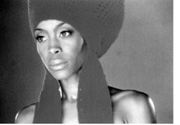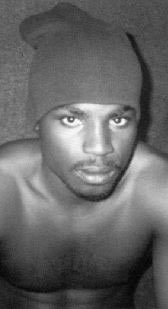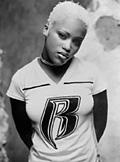The gift of some singers has very little to do with songwriting, vocal tone, or ability to perform glottal histrionics at the drop of a mike. Like great rappers who use their voice as a percussive tool of its own, dipping in and out of the beat to add an extra dimension to the musical backdrop, great singers can achieve an almost eerie calm with their voice, leaving the listener something near woozy. Such deftness is one of the many gifts shared by Erykah Badu and Sade, two of this decade’s most enigmatic, distinctive female vocalists.
It’s been years since either’s graced the pop stage with an album proper (and plenty of rumors have been tossed about in regards to each’s particular absence), and in that time away, musical landscapes have shifted significantly. On Mama’s Gun, her second album, Erykah Badu seems to be, impossibly, both of the moment and somewhere in the nether space that exists above time and throughout it.
On Baduizm, her debut, Erykah achieved that transcendent state mentioned above. Her album was like one long massage, varying in tone but not texture. Every emotion—sass, anger, wit, love, heartbreak—coalesced into one warm blanket of a record, stunning in its aural effect.
Mama’s Gun, from its feisty title on down, is a project of a different order. Instead of a saturated sound, Badu this time aims for sonic eclecticism, in her music and her voice. It’s evident from the album’s opener, “Penitentiary Philosophy,” on which the divine diva checks her restraint at the door for a Hendrix-funk-supported wailfest. She’s preaching and she’s angry, but it’s also clear that despite her cries, Ms. Badu still likes to be refined. Fortunately, producer James Poyser ties it all together neatly, and at track’s end, it’s as if Badu never even broke a sweat.
Poyser’s magic is put to work throughout the album. The behind-the-scenes linchpin of the Soulquarians—the loose collective of forward-thinking hip-hop and soul artists that includes Badu, Mos Def, the Roots, Talib Kweli, and others—Poyser is given full range on Mama’s Gun, and he drops his muse into an unlikely combination of scenarios that take advantage of her natural thrum and stretch it into unforeseen directions. “Booty” has outstanding horn work, slaphappy with funk timing and strategic pauses. “Orange Moon” and “Green Eyes (Movement One)” are downright reserved jazz vocals, minimally produced, and are the closest things to what appeared on Baduizm. “Kiss Me on My Neck” shows Poyser’s (and Badu’s) more experimental side, with disaffected, vocoded hooks and grand electric showers.
It’s a direction not too far from that taken by Badu’s former beau (and baby’s daddy) Andre 3000 of OutKast. It’s clear Dre was close to the top of Badu’s head as she penned the songs on Mama’s Gun. Every other song hints at sadness, loneliness, and rejection, an odd position for a woman who’s been the most royal figure R&B has seen in some time, one who brags “I’m the envy of the women and I rule the men.” But on “Green Eyes,” she confesses in hushed tones, “Never thought I would, but I got dissed”—this after the thinnest metaphor in pop history: “My eyes are green ’cause I eat a lot of vegetables/It don’t have nothing to do with your new friend.” Although she and Dre are reportedly still the best of friends (and Badu has moved on to a relationship with boho rapper Common), it’s clear she had some things to clear up, and it’s those moments of emotional wrangling that lift Badu out of liquid flow mode and into something less proven but equally compelling.
Would that Sade were so lucky as to have a support team like Poyser and the Soulquarians, or a heartbreaker like Andre 3000. Gone now for almost a decade, Sade is like pop’s Thomas Pynchon, perfectly content to live with her family, tour rarely, and make music when she pleases. Amazingly, she’s sold more than 40 million albums worldwide with her uniquely strange ambient soul, a sound that was distinctly global without ever feeling foreign. The music on her earlier albums lulled like soft ocean waves but never crashed over Sade’s thoroughly serene salve of a voice.
By those standards, her comeback Lover’s Rock gets it all wrong. Her unflappable vocals are still there (though, in all fairness, time has weathered them slightly), but her band (the same from a decade ago) tries too hard to craft music as distinct as Sade’s voice. Drum kicks consistently jab at Sade from beneath, and the odd guitar feedback brushes harshly against her mellifluous tones. It’s progress, but Sade is one of those few artists who are classic in their own time. Her sound needs neither amendment nor reduction; any such alteration could, and does, rob it of its power. But what good is an isle of isolated dignity if no one lets you stay on it?








